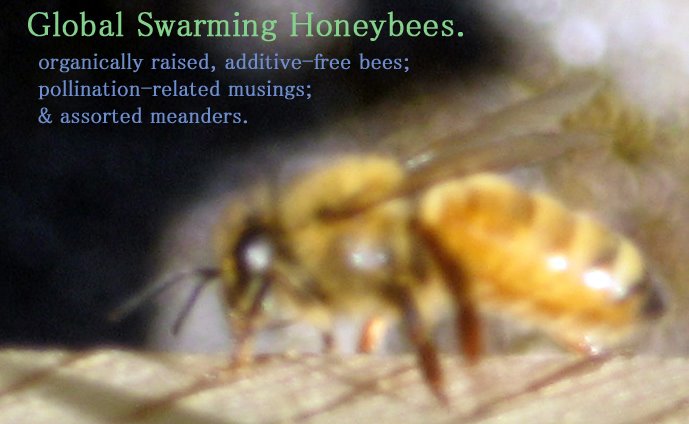As you work the hive, the bees look at you with their eyes and you look at them with yours.
That’s the gist of what organic beekeeping guru Dee Lusby wrote in response to one of my many ignorant questions on the Organic Beekeeping listserv earlier this summer. I was commenting about how nervous it made me to have thousands of “agitated” bees “staring” up at me through the spaces between the top bars while I worked the hive. In response, Dee wrote something that changed my whole attitude toward spending time with the bees.
“Learn to enjoy the sweet little bees. You will do fine! They look at you with eyes and you look at them….Tak[e] frames up slow….[so] you can see their daily normal movements. By observing this daily normal movement and any deviations is how we learn to follow the bees and their needs to see if something is wrong. It’s also how we learn to pet our bees with fingers and play with them and eye them, and talk to them and enjoy!!!”I went into beekeeping because of an affinity for honeybees, a love of insects and flowers, a desire to travel more deeply into the miracles of pollination and seasons and nectar flow and animal mind. And I looked forward to each opportunity to explore the hives for “inspections” (a clinical word that in the future I will replace with “visits”—as a bee visits a flower, I visit the hive.)
But also there was fear, and a not-knowing of the bees—an inability to interpret the many sights, sounds, and even smells of the hive. A difficulty realizing that the bees might simply be staring up at me out of interest, curiosity, or alertness rather than out of agitation or alarm. Of course, a welcoming bee-stance is something I have to earn through gentle, methodical, kind-hearted, well-informed beekeeping.
Now, when I open the hive and ever so slowly pry apart the top bars so I can pay my visit to the bees, I smile at all the little faces gazing up at me with an intelligence so intimate and remote it scrambles my brain. I look at them with my eyes; they look at me with their eyes. And then I speak to them, the sweet little bees. And learn to listen as they speak back.

No comments:
Post a Comment